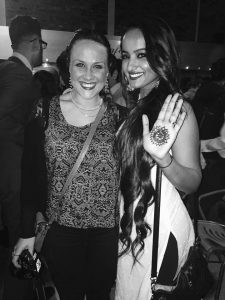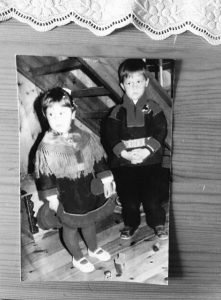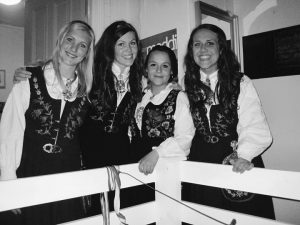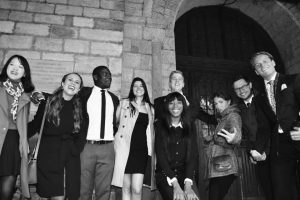Reposted from: the_ustinovian
Ustinov’s own Anne Johnsen has been selected to represent Durham University at international workshop on Global Citizenship. The workshop forms part of a Global Citizenship initiative between the Matariki Network of Universities (MNU) and will take place 18-21 April at Uppsala University, Sweden.
Joining Anne are Ustinov staff member Rebecca Bouveng and Trevelyan undergraduate student Jasmine Simms, who will also take part in the workshop aimed at developing a common approach to fostering global citizenship. Read on for Anne’s ideas of global citizenship and how these fit in with her interdisciplinary background and involvement in the Ustinov community.
How can we as Ustinovians and Durham students bring global citizenship into academia and college life?
That is a big question, which I hope you all will critically discuss with me, the College, and your department, so that all of us can gain a clearer idea of what the term entails. At Ustinov I am involved in the planning for our Annual Conference where the theme this year is ‘Establishing the Global Citizen: Multidisciplinary Perspectives on Global Citizenship’, so your thoughts are especially important to me.
The conference will be interesting and inspiring, and you are all welcome to virtually take a part of it! What do you think global citizenship is or should entail at Durham University? Send me an email at ustinov.gcp@durham.ac.uk and I will take your ideas to the workshop in Sweden! I will also draw, write, take pictures, and make videos about my experiences and insights at the conference, which will be shared through social media and web before, during, and after the workshop.
Global citizenship is a highly complex and challenging term, but for me its core ought to be found at the intersection of academic knowledge and social responsibility. Whereas some will argue that global citizenship is an idealistic way of thinking, I will say the opposite: global citizenship is the realistic solution to the world’s problems.
Statistics reveal to us the numbers of people living in poverty, war, diaspora, starvation, and climate crisis. Research shows how people are being marginalised, discriminated, stigmatised, tortured, traumatised, and starved. These are the facts about inequality, and we as knowledgeable, moral human beings ought to be obliged to fight these injustices.
The political dimension to global citizenship is of great importance, daring to go beyond celebrating multiculturalism, toward critically engagement in local, national, and global politics. That involves questioning my own values and my country’s policie: for example, addressing the salmon industry’s negative impact on the environment, questioning our focus on material consumption, and asking how Norway, as a so-called peaceful nation, can be so heavily involved in the weapons industry.
I understand the term global citizenship to mean the courage to question, challenge, and even offend in order to make it a term with the political power to create social change.
Where I am coming from




I have a multidisciplinary educational background, ranging from Development and Geography, to Languages and Arts, all from different universities and countries. Through the MA in ‘Intercultural Communication and Education’ at Durham University, I am studying language teaching, cultural studies, and education policy. My dissertation on a school project in India, supported by an organisation working for global citizenship and creativity, will deal with UNESCO’s ‘Education for All’ and social change.
I have also studied and worked in different countries, including Norway, Germany, India, and England, and speak five languages (with varied fluency). I have ‘travelled around the world’, but while I am striving to become a so-called global citizen, at the same time I have very strong local roots in my indigenous Sámi community and my Norwegian home town. Growing up with so many different cultures and languages has given me valuable personal insight into the complex levels of global citizenship.
As a member of the Global Citizenship Programme (GCP) at Ustinov College, I am taking a lead on media and communications. The programme promotes global citizenship through its events, and I work with how text and visuals can engage people to attend events and be a part of the community. Besides photography, filming, and graphic design for the promotion of events about local and global issues, I am developing ways to demonstrate global citizenship in practice in the college community.

